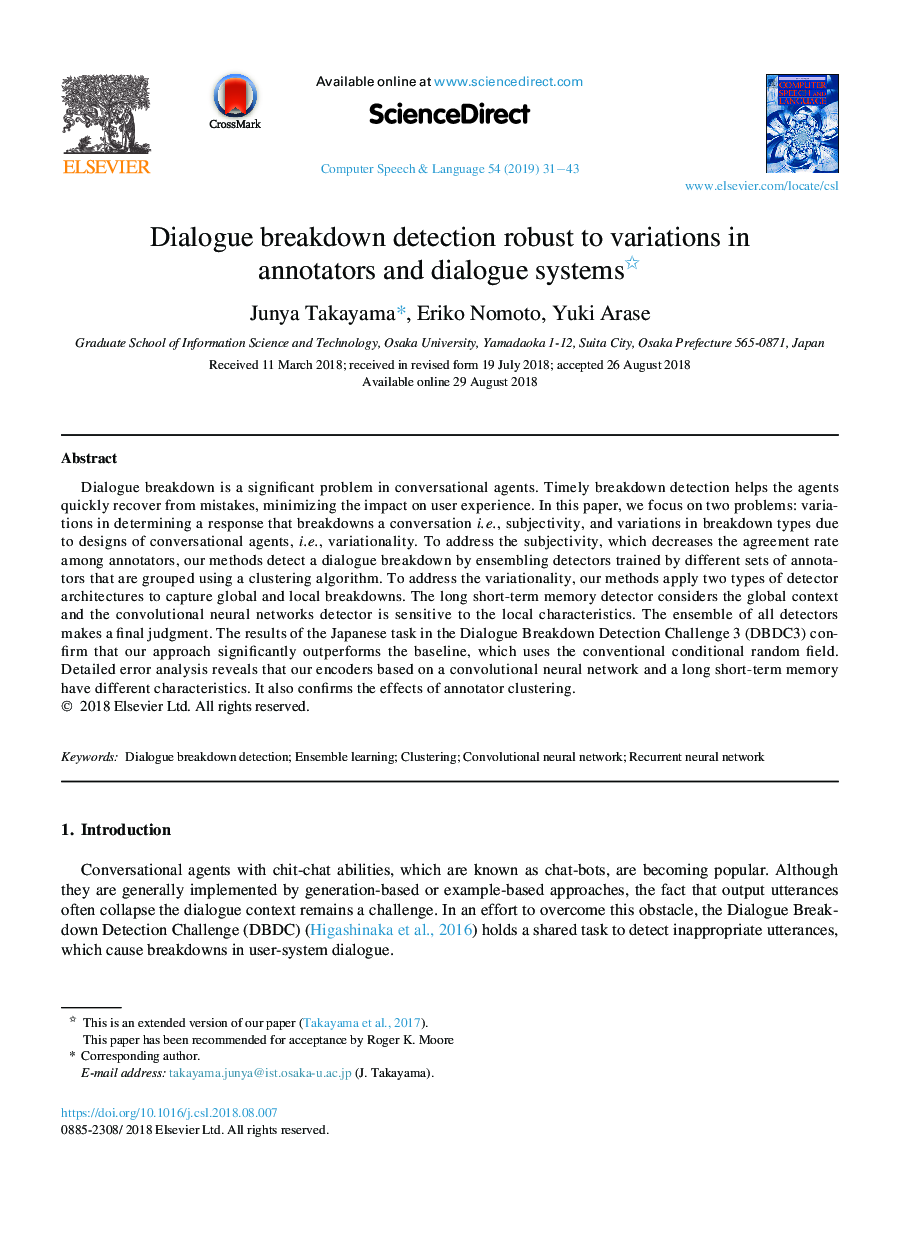| Article ID | Journal | Published Year | Pages | File Type |
|---|---|---|---|---|
| 11028022 | Computer Speech & Language | 2019 | 13 Pages |
Abstract
Dialogue breakdown is a significant problem in conversational agents. Timely breakdown detection helps the agents quickly recover from mistakes, minimizing the impact on user experience. In this paper, we focus on two problems: variations in determining a response that breakdowns a conversation i.e., subjectivity, and variations in breakdown types due to designs of conversational agents, i.e., variationality. To address the subjectivity, which decreases the agreement rate among annotators, our methods detect a dialogue breakdown by ensembling detectors trained by different sets of annotators that are grouped using a clustering algorithm. To address the variationality, our methods apply two types of detector architectures to capture global and local breakdowns. The long short-term memory detector considers the global context and the convolutional neural networks detector is sensitive to the local characteristics. The ensemble of all detectors makes a final judgment. The results of the Japanese task in the Dialogue Breakdown Detection Challenge 3 (DBDC3) confirm that our approach significantly outperforms the baseline, which uses the conventional conditional random field. Detailed error analysis reveals that our encoders based on a convolutional neural network and a long short-term memory have different characteristics. It also confirms the effects of annotator clustering.
Related Topics
Physical Sciences and Engineering
Computer Science
Signal Processing
Authors
Junya Takayama, Eriko Nomoto, Yuki Arase,
